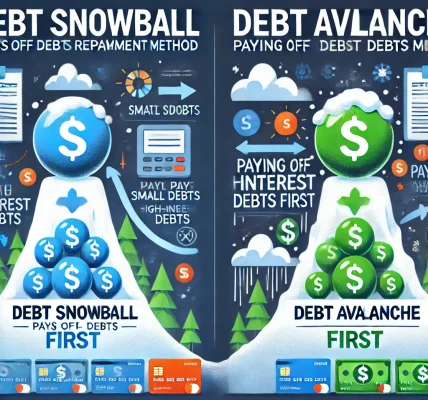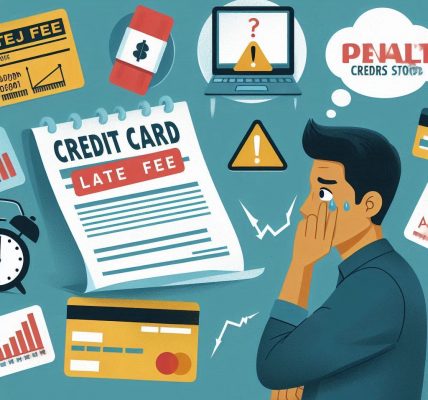Introduction
Managing multiple debts can be overwhelming, with various due dates, interest rates, and lenders to keep track of. Debt consolidation is a strategy that combines multiple debts into a single payment, often with a lower interest rate, making it easier to manage and pay off.
But is debt consolidation the right option for you? In this comprehensive DIY guide, we’ll explore the pros, cons, and best strategies for consolidating your debt effectively while avoiding financial pitfalls.
What is Debt Consolidation?
Debt consolidation is the process of merging multiple debts into one, usually through a loan or balance transfer. This simplifies repayment and can help reduce the total interest paid over time.
Common Methods of Debt Consolidation:
- Personal Loans – Taking out a loan to pay off existing debts, leaving you with just one payment.
- Balance Transfer Credit Cards – Moving high-interest credit card debt to a low or 0% interest credit card.
- Debt Consolidation Loans – A specialized loan designed specifically to consolidate multiple debts.
- Home Equity Loans or HELOCs – Using home equity to pay off debts (risky if you default).
- Debt Management Plans – Working with a nonprofit credit counseling agency to negotiate better terms with creditors.
Pros of Debt Consolidation
- Simplified Finances
- Managing one payment instead of multiple bills reduces stress and confusion.
- Lower Interest Rates
- If you qualify for a lower interest rate, you can save money in the long run.
- Fixed Repayment Schedule
- Personal loans and consolidation loans come with set repayment terms, so you’ll know when you’ll be debt-free.
- Potential Credit Score Improvement
- Lower credit utilization and consistent payments can positively impact your credit score.
- Lower Monthly Payments
- Extending your loan term can reduce monthly payments, making it easier to manage your budget.
Cons of Debt Consolidation
- Upfront Fees
- Some consolidation loans come with origination fees, balance transfer fees, or closing costs.
- Higher Overall Interest Costs
- Extending your loan term to lower monthly payments might mean paying more interest over time.
- Requires Good Credit for Best Rates
- If you have a low credit score, you may not qualify for a favorable interest rate.
- Risk of Accumulating More Debt
- If you don’t address the root cause of your debt, you might continue spending and end up in a worse situation.
- Secured Loans Put Assets at Risk
- Home equity loans or HELOCs use your home as collateral—if you default, you risk foreclosure.
Best Strategies for Debt Consolidation
1. Assess Your Financial Situation
Before choosing a debt consolidation option, review your total debt, income, credit score, and monthly expenses to determine if consolidation is right for you.
2. Compare Debt Consolidation Options
- If you have good credit, a personal loan or balance transfer card may be ideal.
- If you struggle with payments, a debt management plan through a nonprofit agency might be better.
- If you own a home, a home equity loan could be an option but comes with risks.
3. Shop for the Best Loan Terms
- Compare interest rates, fees, and repayment terms from multiple lenders.
- Avoid scams or lenders that charge excessive fees.
4. Create a Repayment Plan
- Budget for your new payment to ensure you can afford it.
- Automate payments to avoid missing due dates.
5. Avoid New Debt
- Once you consolidate, resist the temptation to use newly available credit.
- Focus on financial discipline to prevent future debt problems.
Who Should Consider Debt Consolidation?
Debt consolidation is a good choice for individuals who: ✔ Have multiple high-interest debts. ✔ Can qualify for a lower interest rate than their current debts. ✔ Have a stable income to keep up with payments. ✔ Want a structured repayment plan to become debt-free.
When Debt Consolidation is NOT the Best Option
Debt consolidation may not be the right solution if: ✖ You have a small amount of debt that can be repaid quickly. ✖ You struggle with overspending and lack financial discipline. ✖ You don’t qualify for a lower interest rate than your current debts.
Alternative Options
- Debt Settlement – Negotiating with creditors to reduce the amount owed.
- Bankruptcy – A last resort for those unable to repay their debts.
- Increasing Income & Cutting Expenses – Budgeting and earning more to pay off debt faster.
Conclusion
Debt consolidation can be an effective way to simplify debt repayment and reduce interest costs, but it’s not a one-size-fits-all solution. Carefully assess your financial situation, compare options, and commit to responsible financial habits to make debt consolidation work for you.




